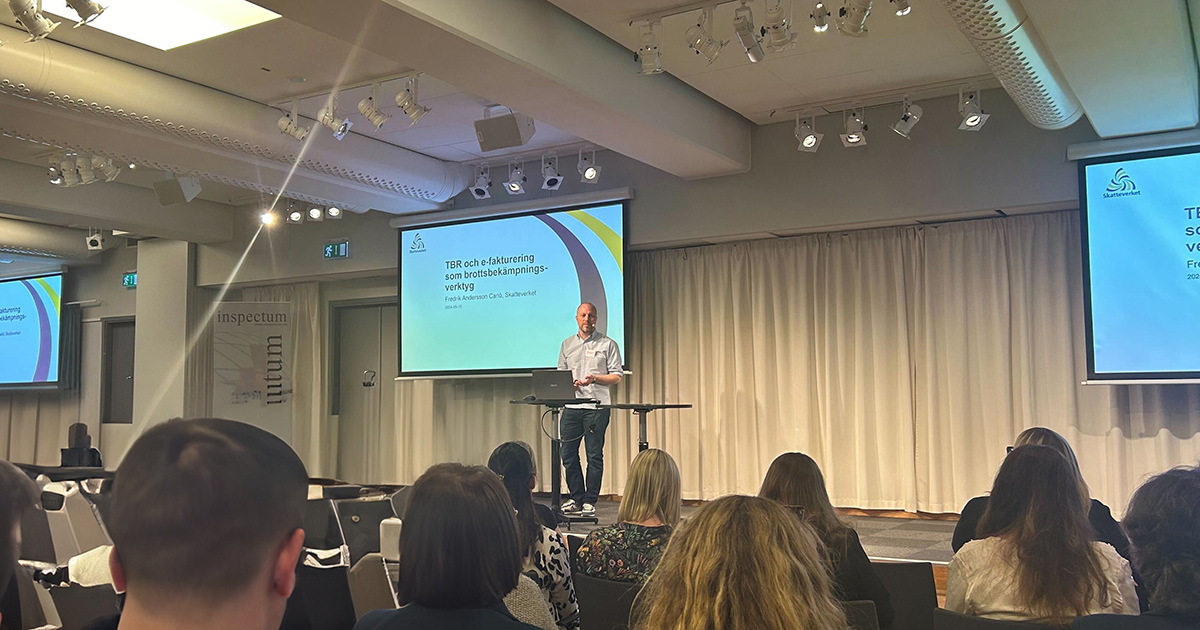We talk ViDA with Fredrik at the Swedish Tax Agency - part 2

Once the first half of 2030 has passed, the time is right. By then, all EU Member States will be ready to introduce mandatory e-invoicing and digital reporting for cross-border transactions within the Union.
The Swedish Tax Agency welcomes this important change.
"But if you really want to digitize here and now, you should set the same requirements for all transactions. Not just those between EU countries", says Fredrik Andersson Carlö, the Swedish Tax Agency's theme leader for transaction-based reporting.
Inexchange has done a longer interview with Fredrik. In the first part, we talked about ViDA, VAT in the Digital Age, from an overall perspective, how the preparatory work is progressing and about the complex puzzle of getting rules and systems in place.
This time we concentrate on Sweden and what ViDA means nationally and how important the renewal of the VAT Directive is for Sweden.
Will there also be a domestic law on mandatory e-invoicing for businesses and public authorities, and if so, will it come into force in the next few years?
"Our Minister for Civil Affairs, Erik Slottner (KD), has said that "100% e-invoicing is the goal". He said this a year ago at a trade fair organized by the Swedish Association of Local Authorities and Regions (SKR). He was asked by one of the moderators about e-invoicing "What is the goal?". He then said that 100% e-invoicing is the goal. But what that means in reality in terms of legislation is difficult to say. The question can of course be asked, but it is not owned by the Swedish Tax Agency but lies with the government and what they want to do."
"But for our part, from the Swedish Tax Agency's point of view, if a national law is to be introduced, it would be good that everything is implemented by 2030. But we'll see how it turns out. It is not realistic to expect that there will be anything internal to Sweden before then. Time is too short."
Probably 2030 at the earliest
What can be considered realistic?
"We don't have a precise indication of when things might start, but we understand that the legislative work might start in 2027."
Which will also take time, one might assume?
"Yes, it goes without saying that it will be difficult to reach a date before 2030. The time until then will probably be needed to ensure that the system gets started and works. From Sweden's point of view, 2030 is probably the earliest we can expect. That is the reasonable time. However, we must be ready by July 1, 2030 if we are not to violate the EU directive. However, if we consider some form of national implementation, that probably means 2030 at the earliest if there is any."
Meanwhile, other EU countries are moving faster. Germany, for example. The fact that Europe's leading economy, Germany, is introducing legislation on e-invoices is positive, isn't it?
"Absolutely. Germany is the last of the major EU countries to announce that it will introduce mandatory e-invoicing and also transaction-based reporting. They will be ready with this by 2028. Then I heard that there was talk about this at a trade fair. On the other hand, there was uncertainty as to whether they will really be ready by 2028, given where they are in the process."
"After all, many countries have postponed the introduction. A timeframe has been set and then it has not been met. A fact that is worth taking into account when we look at the Swedish part. Many have moved the goalposts because it has taken longer than they had intended. There is always the risk of delays. That is worth bearing in mind."


